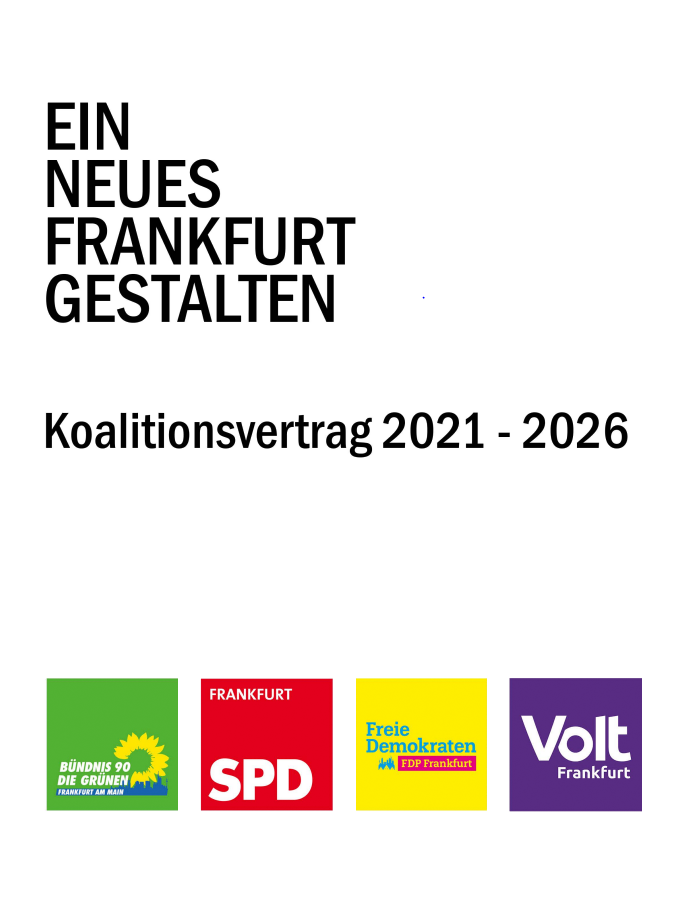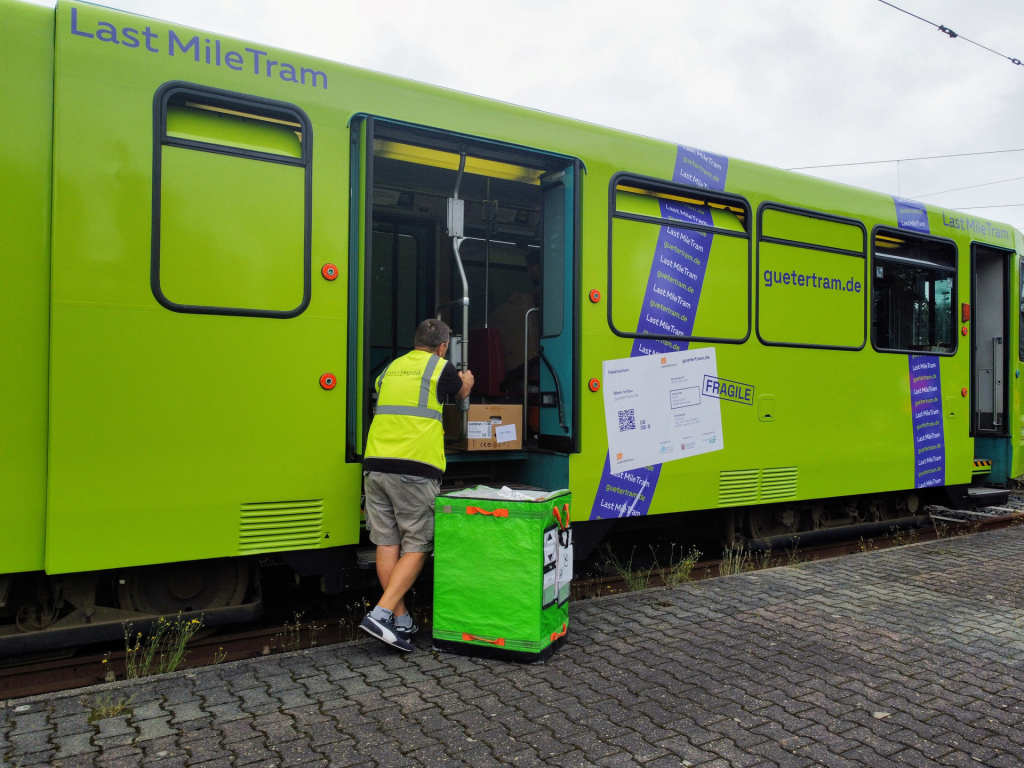Cargo tram
Attention, here comes your parcel: ‘LastMileTram’ research project
What contribution can the tram make in a major city like Frankfurt am Main as part of a more sustainable and locally CO2-free parcel delivery service in combination with electric vehicles? This is what the ‘LastMileTram RheinMain V’ research project of the Frankfurt University of Applied Sciences in cooperation with the Verkehrsgesellschaft Frankfurt am Main (VGF) and Amazon will investigate from 6 September 2024.
As part of a four-week trial, the so-called ‘Gütertram’, a tram used exclusively for parcel transport, will transport parcels and packages from the outskirts of the city to Frankfurt city centre. The aim of the project is to reduce road traffic, noise and CO2 emissions in the city centre.

The project:
The idea of using a cargo tram as part of the ‘last mile’ delivery process began in theory in 2018. The research project went through several iterations, most recently with process simulations, until the LastMileTram went into real operation. The VGF cargo tram transports Amazon parcels from the ‘Stadion’ stop to stops in the city centre and the Gutleut district.
The last-mile transport process is CO2-free: Parcels and packages are transported from an Amazon distribution centre in Raunheim to the tram station on the outskirts of the city using electric vans, while in the city centre electric cargo bikes deliver the shipments to customers’ doorsteps. The project, which uses a pioneering three-tier system of cargo bike, tram and electric van, is funded by the Hessian Ministry of Economics, Energy, Transport, Housing and Rural Areas.
Coalition agreement City of Frankfurt
“We strive for the complete avoidance of fossil-fueled vehicles on the “last mile” of goods and merchandise distribution.”
“Together with business and science, we are developing and testing concepts for a distribution point infrastructure that enables environmentally friendly goods distribution and replaces door-to-door trucks. This includes, in particular, the cargo tram pilot test.”

Logistics concept City of Frankfurt
“For the city of Frankfurt am Main, the use of a cargo tram lends itself to building on the experiences of the already implemented VGF pilot project “Last-Mile-Tram” from 2019.” (Measures for logistics concept M5, page17)
“As part of the cargo tram concept, VGF can act as a “carrier”, i.e. freight forwarders and parcel service providers can book loading space in the transport containers. VGF plans routes and transports or the rail transport schedule.” (Measures for logistics concept M5, page17)
Further information on the “Logistics Concept Frankfurt” can be found here.

Soziale Netzwerke
© Stadtwerke Verkehrsgesellschaft
Frankfurt am Main mbH

